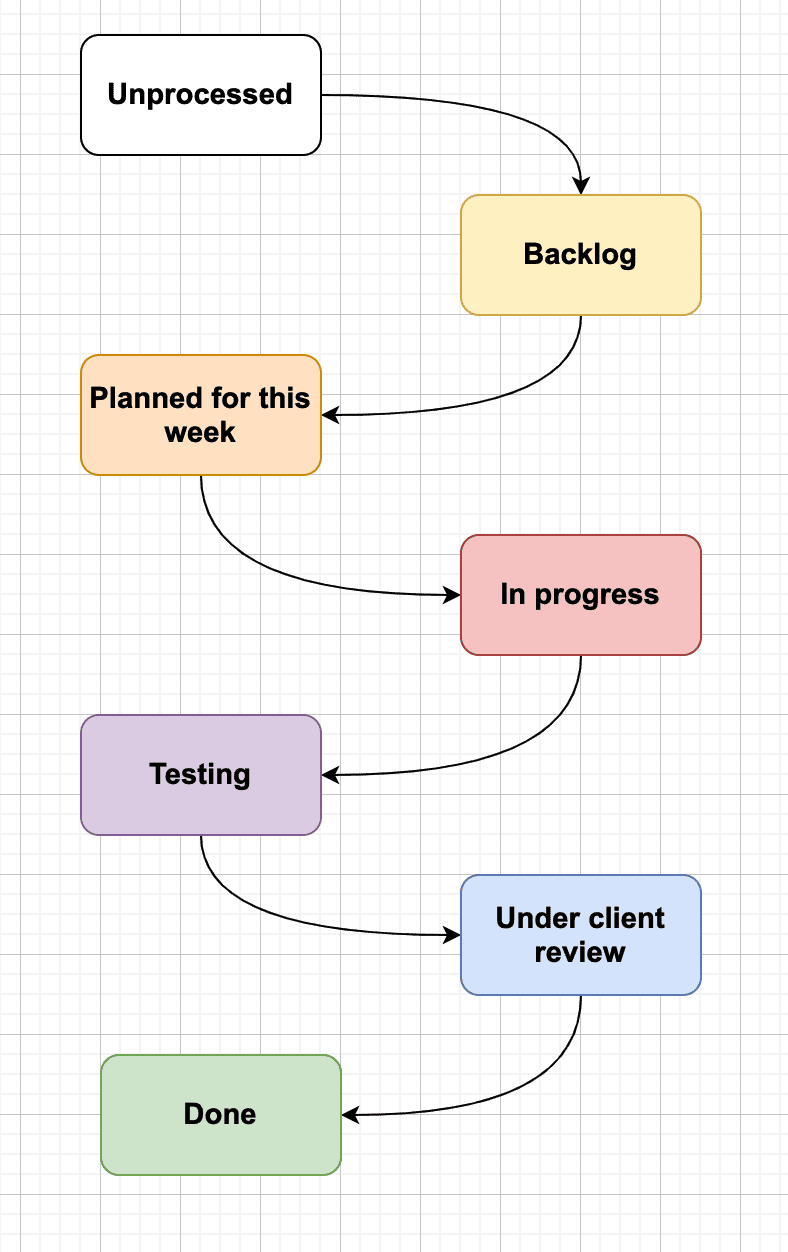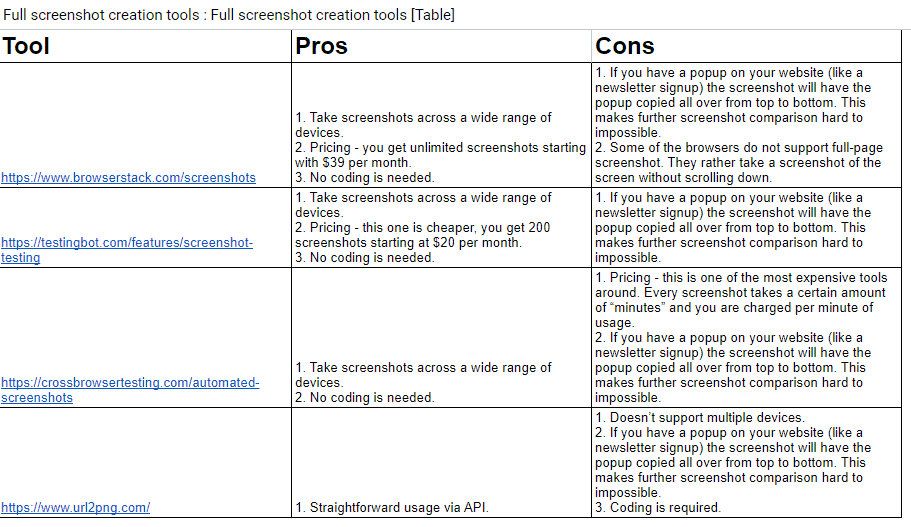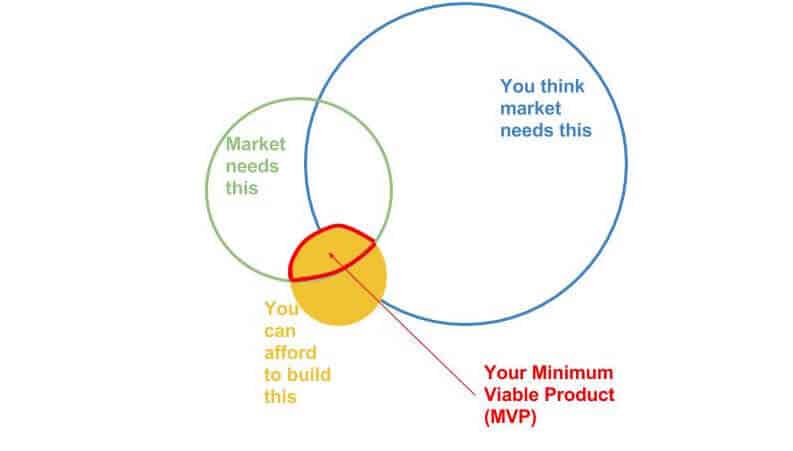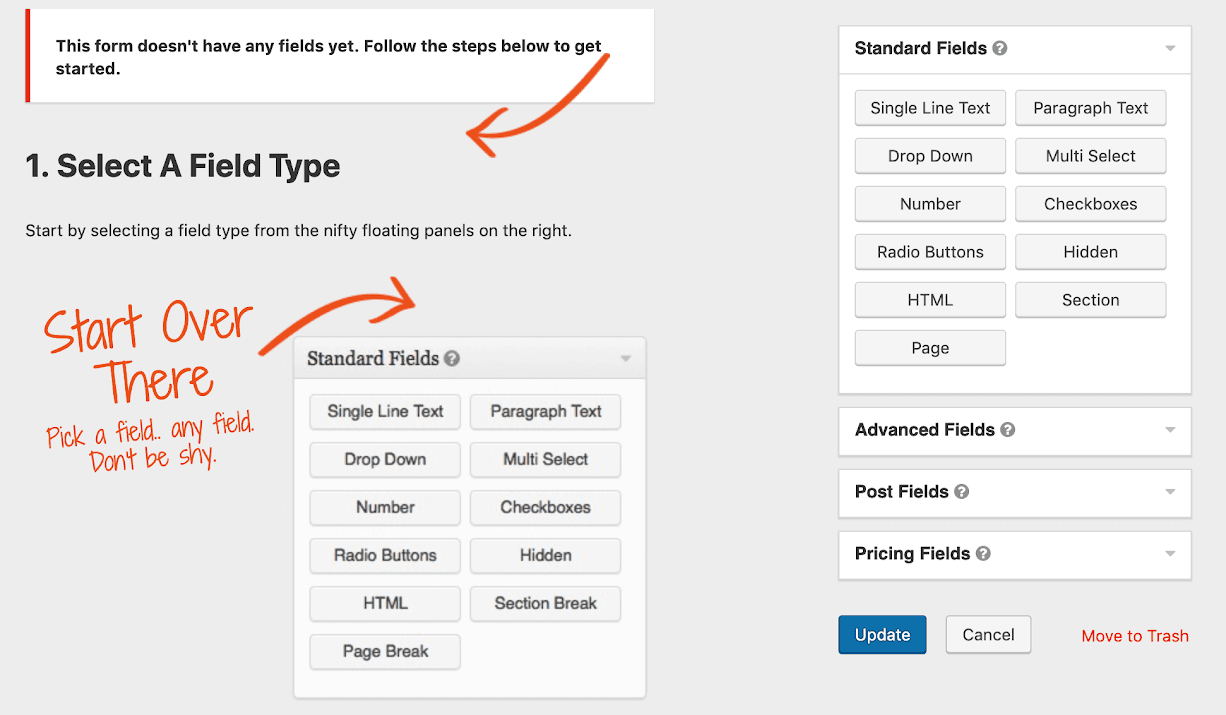I have a friend who absolutely loves cooking.
Every time she invites us over for dinner, she spends half her day preparing three different dishes plus dessert. And not only does she love cooking a lavish meal, but she also enjoys making everything from scratch: the sauces, the pasta, the bread – all of it.
Having dinner at her place is always a treat. You never know whether she’s going to surprise you with a traditional dish from where she grew up or whether she’s going to take your taste buds on a trip abroad. In all the years I’ve known her, she’s carried us all around the globe with her cooking: from Mexico to Morocco, and from Italy to India.
Knowing that she loves being in the kitchen so much, everyone in her life had been encouraging her for years to take her passion to the next level and open up her own restaurant. And after hesitating for nearly half a decade, she finally mustered up the courage to go for it.
Once my friend decided to give it a try, it took her yet another year to find and furnish the right location. Then to comprise a unique food menu, and to pick the best varieties of wine to accompany the foods she had chosen.
Then, the time came to start hiring restaurant personnel. Finding people who shared similar values wasn’t an easy task, but after many interviews, she finally hired two waiters.
And that moment marked the beginning of a new story:
The Story of a Restaurant With Two Waiters and No Chef
Wait, what? Two waiters and no chef?
Yes, that’s right. My friend decided not to hire a chef.
She figured that since she loved cooking so much, she should do it herself. Sure, she had never been to school to become a chef. But in reality, she had been training for this job all her life. She was definitely quite good at it, that much I can confirm.
But let’s be realistic for a moment. Being a great cook is one. But does that automatically grant you the skills you need to turn a restaurant into a successful business? All on your own?
Well, being a good cook clearly allows you to make good food.
But let’s not forget that my friend was not only a chef at her own restaurant now. She was also a business owner and a business manager.
So did she have all the skills to turn her restaurant into a successful business?
Well, here’s the thing: you can’t be an excellent chef for eight hours a day, every day. Then go from the kitchen to your office to handle business matters for another few hours. All with the same level of attention, precision, and energy you’ve had in the kitchen.
Conversely, if you were to put all your energy into running a business, and you truly wanted to focus on the business management side of things, you’d probably end up doing a poor job in the kitchen.
Having so many things on your plate (no pun intended) would only ensure that, sooner or later, something somewhere will go wrong.
Luckily for her, my friend figured that one out quickly and decided to make some changes, and, today, she is the proud owner of:
A Restaurant With Two Chefs and Two Waiters
A business owner is like the captain of a ship. Their job is to make sure that the ship can sail safely and efficiently. They’re there to manage the crew, oversee the operations, and ensure legal compliance. They’re not there to clean up the deck. That’s somebody else’s job.
As a restaurant owner, my friend shouldn’t be the one deciding whether the soup needs any extra salt, while at the same time supervising the personnel, overseeing the operations, negotiating with suppliers, and so on.
For a business to be successful, everyone involved needs to know where their job begins and ends, and make an effort to become really good at handling their specific responsibilities and nothing else.
My friend realized that her desire to do everything herself was going to be a problem. So, she went ahead and hired two chefs. As much as she loved cooking, she knew she couldn’t do two things at once and excel at both. So instead, she decided to run the business and allow her chefs to run the kitchen.
Let the Chefs Cook, Let the Waiters Serve, and the Managers Lead
Cool story. What does that have to do with you?
Well, if you are like most non-technical business owners I’ve talked to, you might be doing just what my friend did: trying to be both a chef and a business manager.
Say “aye” if you’ve been struggling to handle it all yourself. And by all, I mean both the business side of things and the technical side.
Let me guess: you’ve watched hours upon hours of WordPress tutorials and read all sorts of articles talking in great detail about “the best plugins to use” in order to add this or that function to your site.
And maybe, to a certain extent, you have indeed managed to find your way around the WordPress platform on your own.
And so you went ahead and installed about 40 plugins on your site. But then the website became very slow. Sometimes, errors would pop up out of nowhere and leave you scratching your head. Now what?
Admit it: it’s time to call in the experts!
Perhaps we should let the chefs do the cooking and let the waiters do the waitressing. They know what they’re doing. They’re professionals.
The Outsourced WordPress CTO – Your Personal WordPress Masterchef
I’m going to be blunt here: the truth is that if you’re not a technical person, you’re probably not going to be able to create a viable web platform without external assistance.
Should you hire a freelance developer then?
That may be a good idea if you already have a working product, and the only thing you need assistance with is the design and implementation of a new feature.
But if you’re looking to build a product from scratch, you’ll need an entire team to assist you. Creating a complex project requires the participation of a multidisciplinary team that can handle the different moving parts of your platform with excellence.
Why You Might Not Need an In-House Development Team
However, investing in an in-house IT department is most likely an unnecessary expense for the average small business. You’re probably not going to need a team of developers working full-time for you in the long haul.
But if you want to create a WordPress platform, you can still reap the benefits of working with an experienced and highly skilled development team without having to invest in building your own.
All you need to do is find the right web development agency.
The Outsourced CTO: Translating Business Goals Into a Scalable Tech Strategy
Agencies go to great lengths to bring together qualified developers with a wide array of skills.
We’ve talked more about choosing the right agency in this article. However, no matter how skilled your developers are, if you’re not a technical person, you’re going to have a tough time understanding each other and working together efficiently.
Just think about it! How are you going to translate your business goals into a tech strategy that your developers can grasp?
How are you going to manage your team effectively, and how are you going to supervise the web development lifecycle without having a technical background?
I don’t want to burst your bubble here, but if you don’t speak tech, you’ll be in for a headache.
There’s no way around it: you’ll have to find someone who can translate your business needs into a tech strategy and who can speak tech-ish well enough to supervise and manage the web development process.
In other words, you’ll need a CTO – an individual who understands both business management and technology, and who feels comfortable operating in both spheres.
Your CTO’s central responsibilities will be to come up with a tech strategy based on your business needs, to communicate that strategy to the dev team, to ensure the sound functioning of that team, and to deliver a scalable product.
Just like a Masterchef, a CTO doesn’t really have to do “the cooking.” However, they do have to make sure that “the food” is of the highest quality and that it gets to the clients on time. They’re also responsible for “planning the menu,” coordinating, and assisting the team.
Should You Hire a Full-Time CTO Or Consider an Outsourced CTO?
Just as you may not need an in-house development team for your small business, you probably won’t need an in-house CTO at all times either.
And there’s no point in spending your money to hire someone full-time if you’re only going to need their technical supervision services for this one web development project that you have.
All things considered, you’re better off with an outsourced CTO.
Where Can You Find an Experienced CTO?
Well, there’s no shortage of companies that offer CTO outsourcing services. But if you’re planning on finding a CTO at this agency and then hiring a development team at this other agency, you’re making things a lot more complicated than they should be. Not to mention, you risk dealing with a fragmented team and constant breakdowns in communication.
To avoid hiccups, you want a CTO who comes with a dev team by default. You can get this winning combo by getting an outsourced CTO at a web development agency.
The advantage here is that the developers and the outsourced CTO already have plenty of experience working together on a wide array of projects. They likely communicate and collaborate well with another, and they know each other’s strengths.
Having a cohesive and experienced team to consult with will make it much easier for the outsourced CTO to determine what combination of programming languages works best for your specific project and determine who on the team can do what.
As you can see, outsourcing your CTO from a WordPress agency means hiring an expert with a few superpowers: multiple pairs of eyes, many heads that think in concert, and several pairs of hands.
Here’s What the Ideal Development Team Looks Like
If you’re cooking a complex project, here’s what your team should look like:
- Outsourced CTO – as we’ve determined, they are responsible for translating your business needs into a tech strategy and guiding the development process. They will be your primary person of contact.
- Developers – the guys and girls we generally think of when discussing web development. They’re doing the heavy lifting – the programming.
- Designers – the people responsible for the aesthetic character of your site. Their job is to create the website layout and ensure that everything is visually pleasing and user-friendly.
- Tester – a professional web tester will ensure that every feature is functional and working as expected.
The Secret Recipe of a WordPress Masterchef
So, how do you “cook up” a complex WordPress project?
Well, to begin with, before getting into the kitchen, you have to decide what’s going to be on the menu.
So, every week, you and your outsourced CTO, aka your personal WordPress Masterchef, should meet up and talk about your “meal plan” for the week.
The goal of each meeting is to devise a plan for the upcoming few days. To decide what features you need to implement and what changes and updates you have to perform.
Weekly Planning: How Your Outsourced CTO Cooks Up WordPress Success
In the WordPress realm, this is called a Weekly Standup Meeting or Weekly Huddle.
These meetings aim to see where your project stands and talk about what needs to happen next.
- The meetings start with the participants evaluating last week’s performance. Has everyone achieved their objectives? Are there any unfinished tasks that may need extra attention?
- Then, the team discusses the challenges they’ve encountered while trying to complete those tasks.
- Finally, the team gets to establish a new plan for the current week.
Armed with a plan, your CTO and their team will “get into the kitchen and start cooking.”
As the week progresses, this personal Masterchef of yours will make sure to send you regular updates. They’ll use communication tools, like Asana or Slack, to allow you to “look into the oven and watch the cooking while it happens.”
If you have a complex WordPress project to create, there will be a lot of features to design and implement. But your outsourced CTO will keep track of everything. They will let you know where the team stands with the development of each of these features.
It’s just like having a big restaurant. If you get a high volume of orders, your chefs have to cook several dishes at the same time. So, to optimize the process and deliver the food as quickly as possible, someone needs to check on every dish to see whether it’s still in the oven, on the kitchen counter ready to be put on a plate, or already on the plate waiting to be served.
Every meal you’re preparing has a series of steps you must follow to get it delivered on time. And things aren’t much different regarding “cooking up” WordPress features.
The “Cooking” Stages Are the Key to Any “Tasty” WordPress Project
Just like cooking requires following a collection of steps, so does web development. At our WordPress agency, each set of tasks goes through the following stages:

- Unprocessed – these are all the new issues that need sorting out;
- Backlog – once we figure out what needs to be taken care of right away and what can wait, this is where we move the items we decide to postpone;
- Planned for this week – the items in this category don’t have a precise ETA; if a task takes less than one working day to complete, then we go ahead and do it; if not, we leave it aside and wait for the green light before we address it;
- In progress – these are all the tasks we’re working on at a given time;
- Testing – at this stage, our internal tester is testing and confirming functionality;
- Under client review – once we get here, it’s your turn to review the features we’ve created for you and let us know whether they meet your expectations;
- Done – the items in this category are closed and deployed; in other words, our job here is done.
What makes a good CTO
We’ve talked a lot about processes. But there’s one more thing that needs to be said about what makes a good CTO.
Beyond being a knowledgeable tech guy and a good manager with a comprehensive understanding of the business world, there’s one other thing that a good CTO should be able to do for you: treat this business relationship as a real partnership.
After all, the two of you will work a lot together. You want an outsourced CTO who is committed to seeing your business grow. Someone there to listen to what you need and ensure you get what you were promised.
And if you’re looking for the kind of technical partner you can trust, we’re here to help.
In closing, you may also give a read to our guide about how to hire the best WordPress maintenance agency for your business.











